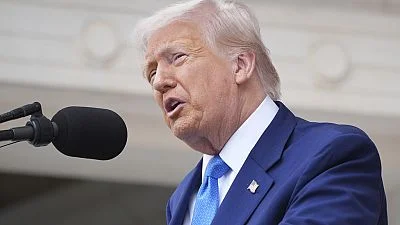The U.S. State Department has directed embassies and consulates worldwide to suspend scheduling new student and exchange visitor visa interviews.
This is part of a broader effort to intensify social media screening for international applicants.
According to the State Department memo, existing appointments will proceed, but no new interviews will be scheduled until further guidance is issued.
The policy shift aligns with the Department of Homeland Security’s (DHS) April 2025 announcement.
Which states that, it will consider anti-Semitic activity on social media or physical harassment of Jewish individuals as grounds for denying immigration benefits, including student visas.
While details of the enhanced vetting process remain undisclosed, officials indicate it will focus on identifying content related to terrorism, fraud, or anti-Semitic behavior.
Trump’s Push Against Universities
The visa interview also halt coincides with former President Donald Trump’s ongoing criticism of U.S. universities, which he accuses of tolerating antisemitic behavior under the guise of pro-Palestinian activism.
Trump has targeted institutions like Harvard, attempting to suspend billions in federal grants and revoke their authority to host international scholars.
A federal court however blocked the latter move last week, citing legal concerns.
The DHS’s new guidance, effective April 2025, allows U.S. Citizenship and Immigration Services (USCIS) to scrutinize applicants’ social media for content endorsing or promoting anti-Semitic ideologies or violence.
This has raised alarms among free speech advocates, who argue that such measures could infringe on constitutional protections and deter international talent.
Global and Domestic Reactions
China, a major source of international students in the U.S., has expressed concern over the policy, urging Washington to protect the rights of foreign students.
Chinese nationals represent a significant portion of the 1.4 million international students in the U.S., and disruptions to visa processing could impact their academic plans.
U.S. universities, heavily reliant on higher tuition fees from international students, are expected to challenge the policy.
Several institutions are already embroiled in legal disputes with the administration over funding cuts and visa revocations, fearing damage to their global reputation.
Implications for Higher Education
Critics, including academic leaders and free speech advocates, warn that the administration’s actions could undermine the U.S. higher education system’s standing as a global leader.
Social media vetting, particularly for vague or subjective criteria like “anti-Semitic activity,” may deter prospective students and scholars, impacting enrollment and diversity.
The pause on visa interviews and expanded vetting are part of a broader immigration crackdown, with USCIS reviewing social media activity to assess applicants’ eligibility.
As the policy unfolds, its long-term effects on international student mobility and U.S. academic institutions remain uncertain.























